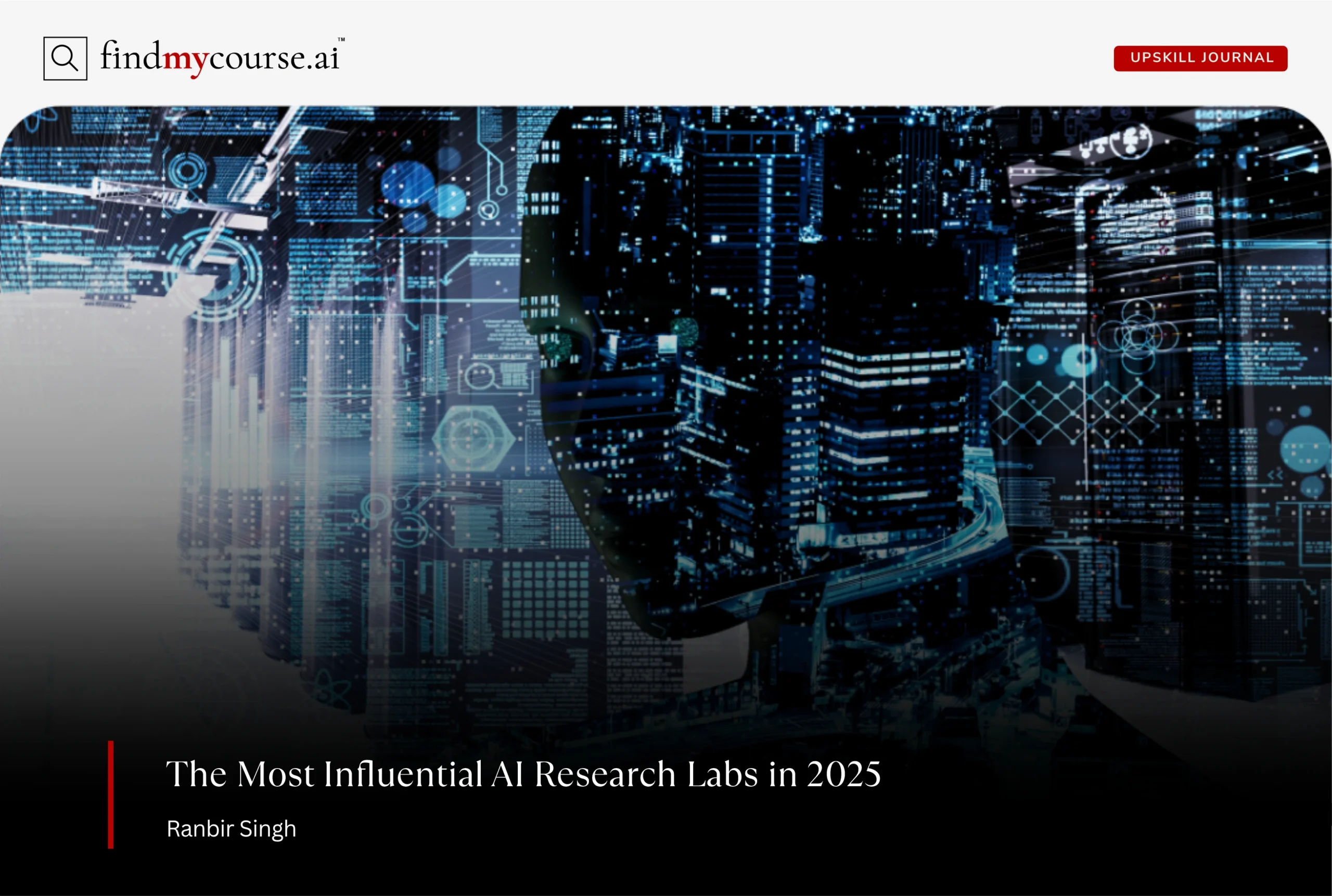Every app, device, and service you use today carries traces of AI, the force quietly shaping the modern world. Behind these innovations are AI research labs—specialized centers where researchers and engineers turn bold ideas into powerful algorithms, intelligent systems, and practical applications. These labs don’t just build models; they explore the limits of machine learning, set ethical standards, and create technologies that define industries. In this guide, we’ll explore the top AI research labs you should know in 2026, their groundbreaking work, and how they are influencing the future of technology and careers in AI.
Understanding the Role and Function of AI Research Labs
AI research labs are the engines driving innovation in artificial intelligence. They do more than develop software or models—they create frameworks, methodologies, and insights that shape the AI ecosystem. By combining advanced computational resources, expert talent, and structured experimentation, these labs tackle complex challenges, translating theory into practical, real-world solutions. They also ensure AI systems are safe, ethical, and aligned with human values, while fostering collaboration across academia and industry.
Key functions and roles of AI research labs include:
- Foundational Research: Developing new algorithms, neural network architectures, and reinforcement learning strategies.
- Applied Research: Creating practical AI solutions for healthcare, autonomous systems, recommendation engines, and more.
- Collaboration: Partnering with universities, other labs, and industry to accelerate innovation.
- Ethics and Safety Oversight: Ensuring AI systems are transparent, fair, and aligned with human values.
- Innovation Hubs: Producing breakthroughs that set industry standards.
- Talent Incubators: Mentoring researchers, engineers, and data scientists while providing hands-on experience.
- Knowledge Dissemination: Publishing papers, releasing open-source tools, and hosting workshops.
- Guiding AI Policy and Ethics: Influencing regulations, governance, and public understanding of AI.
The Top 10 AI Research Labs in 2026
The world’s leading AI research labs are driving some of the most exciting breakthroughs in technology today. Here’s a closer look at the top 10 AI research labs in 2026 that are shaping the future.
1. OpenAI
OpenAI is one of the most recognized AI research labs globally. Known for creating the GPT series, DALL-E, and Codex, OpenAI focuses on advancing Artificial General Intelligence (AGI) while prioritizing safety and ethical alignment. Its research spans reinforcement learning, multimodal AI, and large language models, making it a reference for responsible AI development. OpenAI also offers collaboration opportunities, educational programs, and research initiatives, making it an excellent hub for professionals and learners looking to explore AI innovation and practical applications.
2. Google DeepMind / Google AI
DeepMind and Google Brain merged to create a leading force in AI research. DeepMind is famous for AlphaGo, AlphaFold, and Gemini, demonstrating expertise in reinforcement learning, protein folding, and multimodal AI. Google AI complements this with foundational machine learning research, natural language understanding, and ethical AI practices. Their interdisciplinary approach, combining neuroscience, computer science, and ethics, provides valuable insights into AI theory and practical deployment. Both labs influence industry standards and provide educational resources and collaboration opportunities for emerging AI professionals.
3. Meta AI (FAIR)
Meta AI’s FAIR (Fundamental AI Research) division leads research in generative AI, computer vision, and open-source tools. Its LLaMA series of models and public projects demonstrate Meta’s commitment to collaboration, transparency, and community-driven development. FAIR focuses on scalable AI applications, including virtual reality, social media, and natural language processing. By combining theoretical research with practical deployment, Meta FAIR serves as a learning hub for engineers, developers, and researchers aiming to work with advanced AI models while observing ethical and open research practices.
4. Microsoft Research (MSR)
Microsoft Research is one of the world’s largest corporate AI labs, integrating AI into products like Copilot, Azure AI, and enterprise solutions. MSR conducts cutting-edge research in machine learning, natural language processing, computer vision, and human-computer interaction. Collaborating closely with OpenAI, the lab applies advanced models to real-world products while contributing to open-source projects. MSR also supports educational initiatives, internships, and research partnerships, making it a hub where professionals can gain hands-on experience with AI technologies and stay at the forefront of innovation.
5. Anthropic
Anthropic, founded by former OpenAI researchers, is a leading lab in AI alignment and safety. Known for the Claude series of language models, it focuses on creating AI systems that are predictable, interpretable, and aligned with human intentions. Anthropic combines research in reinforcement learning, large language models, and human feedback mechanisms to develop ethical and reliable AI. Professionals and learners benefit from studying its published research and safety frameworks, gaining insights into responsible AI design, practical development practices, and emerging approaches to mitigating risks in advanced AI systems.
6. Stanford HAI / SAIL
Stanford University hosts the Human-Centered AI (HAI) initiative and Stanford AI Lab (SAIL), both highly influential in academia and industry. Their research spans robotics, machine learning, AI ethics, and policy, emphasizing human-centered design. Stanford labs produce widely cited research, organize workshops and seminars, and offer collaborative projects for students and professionals. HAI and SAIL provide a comprehensive environment for learning foundational AI theory while exploring real-world applications, helping learners understand AI’s societal impact, ethics, and governance while fostering innovation and career growth in research-driven AI fields.
7. MIT CSAIL
The Computer Science and Artificial Intelligence Laboratory (CSAIL) at MIT is a global leader in AI research. It focuses on robotics, machine learning, human-computer interaction, and AI-driven systems. CSAIL integrates theoretical research with practical experiments, offering educational programs, open-source projects, and research assistantships. Its work often bridges academia and industry, producing tools and innovations adopted worldwide. For learners and professionals, CSAIL is a fertile environment to upskill, gain hands-on experience, and explore AI applications across diverse fields, from autonomous systems to intelligent interfaces.
8. UC Berkeley BAIR
The Berkeley Artificial Intelligence Research (BAIR) lab specializes in reinforcement learning, robotics, and computer vision. BAIR maintains strong connections with Silicon Valley, enabling fast translation of research into startups and commercial applications. The lab fosters collaboration among students, faculty, and industry professionals, providing workshops, internships, and research opportunities. BAIR emphasizes hands-on experimentation, real-world problem-solving, and interdisciplinary learning. For professionals and learners, BAIR offers an environment to develop practical skills, explore AI innovations, and contribute to cutting-edge projects that influence both academia and the technology industry.
9. Baidu Research
Baidu Research is China’s leading corporate AI lab, focusing on large-scale machine learning, natural language processing, and autonomous driving technologies like the Apollo platform. It engages in both fundamental research and applied solutions for industries including healthcare, transportation, and smart devices. Baidu Research collaborates internationally and publishes extensively, shaping AI research standards and practices. For professionals and learners, the lab provides insights into large-scale AI deployment, autonomous systems, and commercial applications, making it a valuable reference point for understanding AI innovation in the Chinese and global markets.
10. Tencent AI Lab
Tencent AI Lab is a prominent Chinese research center excelling in computer vision, speech recognition, and gaming AI. It develops solutions for social media, entertainment, healthcare, and enterprise analytics. The lab combines applied research with foundational AI studies, contributing to publications, open-source tools, and industry collaborations. Tencent AI Lab also offers educational initiatives, internships, and workshops for emerging professionals. Its work also highlights the integration of AI into consumer products and large-scale services, providing learners and practitioners with practical examples of advanced AI implementation and innovation.
The Global Impact of AI Research Labs
AI research labs are shaping technology on a truly global scale. Leading institutions in the United States, such as OpenAI, Microsoft Research, and Stanford HAI, drive breakthroughs in large language models, reinforcement learning, and robotics. At the same time, Chinese labs like Baidu Research and Tencent AI Lab are advancing autonomous systems, NLP, and gaming AI, while fostering innovation within their regional markets. Collaboration between labs across continents accelerates knowledge sharing, ethical guidelines, and scalable solutions. Moreover, for professionals and learners, understanding this global landscape offers insights into emerging trends, cross-border opportunities, and the future direction of AI, highlighting where innovation is happening worldwide.
Final Thoughts
The top AI research labs are shaping not just technology but the future of how we understand and apply intelligence itself. Their discoveries highlight both the potential and responsibility of AI, from practical solutions to ethical considerations. For learners and professionals, these labs offer a window into innovation, collaboration, upskilling and the evolving challenges of the field. Observing their work provides perspective on where AI is headed and inspires thoughtful engagement with its impact on society, industries, and the next generation of technology-driven opportunities.


